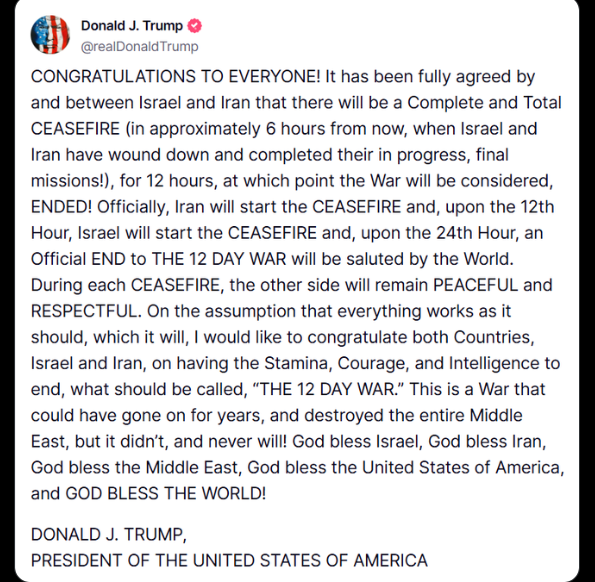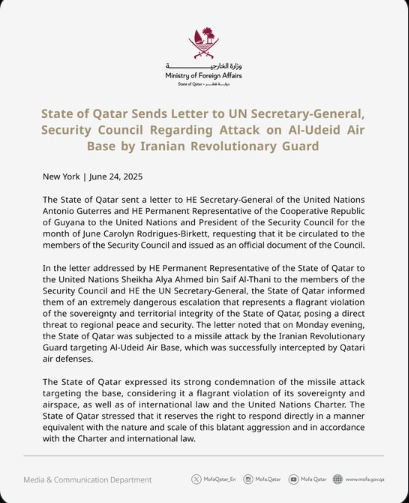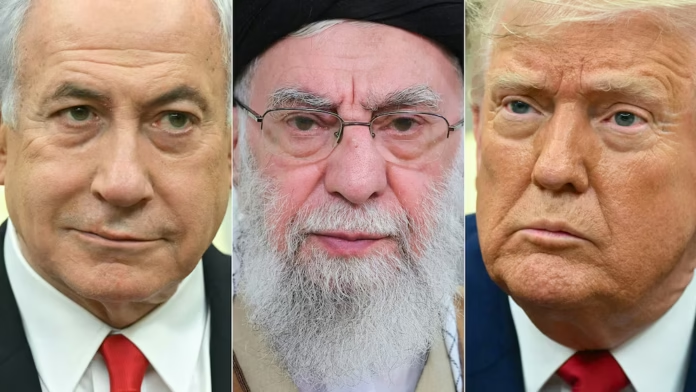US President Donald Trump announced Monday evening a ceasefire between Iran and Israel. It’s offering a glimmer of hope after 12 days of intense conflict. Iran’s state media confirmed a ceasefire deal, but there has been no official comment from Israel yet, and it is not clear what time any pause may take place
The ceasefire was announced late Monday. It comes after weeks of devastating airstrikes, missile attacks, and rising fears of a full-blown regional war. The conflict escalated sharply after Israel launched a surprise offensive on June 13, targeting Iran’s nuclear and military infrastructure. The United States later joined the military operations, deepening international concerns.
Despite the agreement, Israeli Defence Minister Israel Katz claimed Iran had fired missiles in violation of the ceasefire and ordered retaliatory strikes on targets in Tehran. In response, Iran denied launching missiles and accused Israel of continuing attacks well beyond the agreed ceasefire time.
Civilians Celebrate Peace, Despite Losses
In both nations, citizens expressed relief, tempered by loss.
“We’re happy, very happy. The war never should have started.”
said Reza Sharifi, a Tehran resident returning from Rasht, where he had fled with his family.
(quote source- Reuters)
President Trump announced the ceasefire on his Truth Social account, stating:
“THE CEASEFIRE IS NOW IN EFFECT. PLEASE DO NOT VIOLATE IT!”

Despite the optimism, the reality on the ground was complicated. Iran’s military headquarters claimed Israeli strikes continued until 9 a.m. local time—90 minutes past the official ceasefire start.
Claims of Victory on Both Sides
Both Iran and Israel are portraying the ceasefire as their strategic win.
-
Israeli Prime Minister Benjamin Netanyahu said the offensive met its goals—to dismantle Iran’s nuclear and missile programs.
-
Iran’s Supreme National Security Council countered that Israel was forced into accepting the ceasefire, calling it a “unilateral defeat.”
Yet, military postures remain aggressive.
Iran warned its forces are “ready to respond to any further aggression.”
Israel vowed to continue targeting Iranian “terror infrastructure” if necessary.
Civilian Toll and Global Reactions
In the final hours before the ceasefire:
-
A missile strike in Beersheba, southern Israel, killed four.
-
Iran reported nine deaths, including a nuclear scientist, in a strike on a residential building in its north.
Across the globe, markets reacted with relief.
Stock indexes surged and oil prices dropped, signaling hopes of stability returning to the region.
The war, one of the most confrontational between Israel and Iran, saw Israel bomb symbolic sites, including Tehran’s Evin Prison, known for housing political prisoners.
Iran retaliated with unprecedented missile barrages. For the first time, dozens of Iranian missiles penetrated Israeli defenses, killing 28 people.
The U.S. had joined the conflict two days earlier, striking Iranian nuclear sites with advanced bunker-buster bombs. In response, Iran fired missiles at the U.S. military base in Qatar. However, no casualties were reported, suggesting a deliberate move to de-escalate.
Behind the Ceasefire: Diplomacy in Action
The ceasefire was brokered through a mix of direct and indirect negotiations:
-
Trump personally spoke with Netanyahu to secure Israeli cooperation.
-
Qatar’s Prime Minister, Sheikh Mohammed bin Abdulrahman Al Thani, held talks with Iranian officials to secure their agreement to the ceasefire.
Meanwhile, the State of Qatar formally addressed the United Nations, expressing strong condemnation of the missile attack on Al-Udeid Air Base by Iran’s Revolutionary Guard—a move Qatar labeled a
“flagrant violation of its sovereignty and a breach of international law.”
In a letter sent to UN Secretary-General António Guterres and the UN Security Council, Qatar warned that it reserves the right to respond in a manner proportionate to the threat, under the UN Charter. The statement also emphasized that the missile was successfully intercepted, averting casualties.

Iran reportedly warned the U.S. about its retaliatory strike in advance. Trump later called the response “very weak” and “expected,” adding:
“I would like to congratulate both countries… for ending what should be called ‘THE 12 DAY WAR’.”
What This Means for India and the World
-
Energy Impact: With tensions easing, oil prices are likely to stabilize, offering relief to importing nations like India.
-
Diplomatic Signals: The U.S.’s role in ending the war reasserts its influence in West Asia.
-
Security Watch: India, with large diaspora populations in both regions and energy dependencies, will be watching closely for lasting peace.








